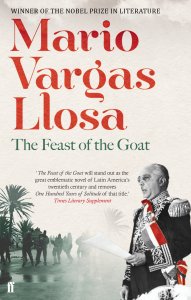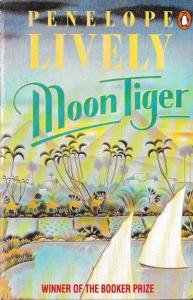 The Feast of the Goat is an historical fiction exploring the rein and assassination of Rafael Trujillo, a dictator who ruled the Dominican Republic for close to 30 years, and the aftermath of his assassination.
The Feast of the Goat is an historical fiction exploring the rein and assassination of Rafael Trujillo, a dictator who ruled the Dominican Republic for close to 30 years, and the aftermath of his assassination.
The years that Trujillo held power, first as President, then as unelected military strongman, were among the bloodiest, most brutal of all dictatorships, and this story pulls absolutely no punches. It’s important to know that going in.
For context, the end of the Trujillo Era was fraught with foreign interests, primarily those of the United States. Just a few weeks before Trujillo’s assassination, the US-supported invasion of the Bay of Pigs had failed. While US diplomacy originally supported Trujillo’s dictatorship, Trujillo proved himself vulnerable to provocation, and when he attempted an assassination of Venezuelan President Betancourt, the US, uneasy with his streak of independence, supported a conspiracy to assassinate him and install a more stable, democratic government to lead the DR. Concurrent with Trujillo’s time of power were many other dictatorships in the Caribbean Basin, Central and South America (in Cuba, Nicaragua, Guatemala, El Salvador, Honduras, Venezuela, and Haiti) and the wider context was of course the United States’ concerns about the spread of Communism.
The novel is written in a nonlinear style, starting decades after the end of the Trujilla Era when the daughter of a Senator returns to the crumbling capital of Santo Domingo (formerly ‘Trujilla City’) to visit her degenerate father whom she has otherwise not seen or spoken to in nearly 40 years. The story brings together a profusion of characters and historical figures, and getting used to the writing style and elaborate, detailed perspectives that each brings to the novel was initially challenging, but once you get accustomed to it, the ability of the author to piece together such a profoundly complex, nuanced, human story is simply astonishing.
Many of the individuals portrayed throughout the novel endured Kafkaesque campaigns of disillusionment, paranoia and unreality that one character likens to the experience of the lead in Orson Welles’ the Trial. Many individuals during the rein of Trujillo fall from grace without ever knowing what they did, and the erosion of self-esteem and reality these characters endure – while horrifying – is very effecting.
Following the assassination of Trujillo, the brutality, manipulation and torture that the conspirators and their families suffer is exceptionally cruel, relentless, and very difficult to read. In the end, hundreds of individuals were bracketed together as traitorous, most of them plainly innocent, though you’ll never find their bodies as most were quite literally thrown to the sharks.
Before reading this yourself, just know how unflinching the descriptions of violence can be.
 Moon Tiger tells the story of an aging wartime journalist, Claudia Hampton, as she narrates the memories of her life from her deathbed in distinctly refracted, dreamy, self-serving episodes. Her life took her from England abroad many times as a journalist and historian, the most important trip of which being her time in Egypt (1940 – 1944) during Rommel’s efforts to capture the country, therefore move the front closer to the Middle East.
Moon Tiger tells the story of an aging wartime journalist, Claudia Hampton, as she narrates the memories of her life from her deathbed in distinctly refracted, dreamy, self-serving episodes. Her life took her from England abroad many times as a journalist and historian, the most important trip of which being her time in Egypt (1940 – 1944) during Rommel’s efforts to capture the country, therefore move the front closer to the Middle East.